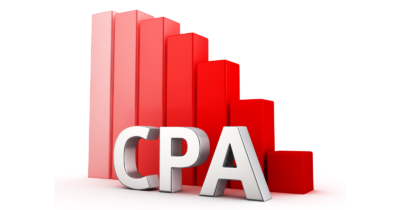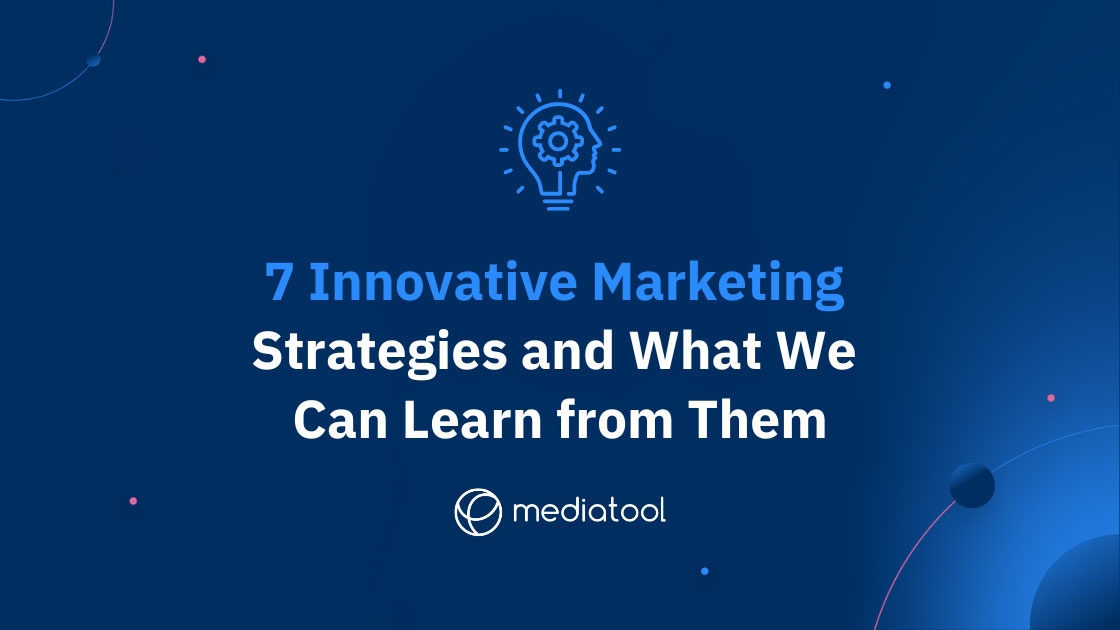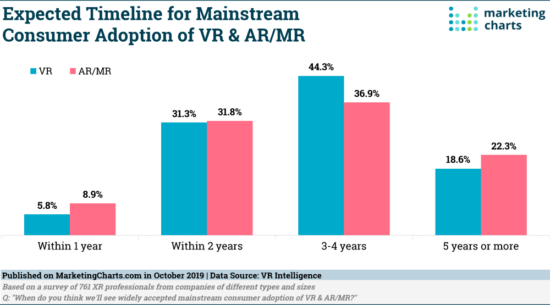exploring the latest trends and innovations in CPA lead generation
Buy CPC Traffic | Buy Display Ads | Exclusive traffic sources | Buy Push Ads | Popunder ADS | Buy Native Ads | Buy Preroll Ads

Buy CPC Traffic | Buy Display Ads | Exclusive traffic sources | Buy Push Ads | Popunder ADS | Buy Native Ads | Buy Preroll Ads
In the ever-evolving world of digital marketing, staying ahead of the game is essential for success. One area that has become increasingly important for businesses is CPA lead generation. Cost Per Action (CPA) advertising offers a unique opportunity to drive targeted traffic and generate leads, but it requires a deep understanding of current trends and innovations.
One of the most significant trends in CPA lead generation is the rise of mobile advertising. With the growing number of smartphone users worldwide, businesses must adapt their strategies to effectively target mobile users. Mobile optimization, responsive design, and mobile-specific ad formats are just a few ways to ensure that your CPA lead generation efforts are reaching the right audience.
Another trend in CPA lead generation is the integration of artificial intelligence (AI) and machine learning. These technologies have revolutionized the way businesses analyze data and optimize their campaigns. AI-powered algorithms can identify patterns, predict customer behavior, and make real-time adjustments to maximize conversions. By harnessing the power of AI, businesses can stay ahead of their competition and drive more targeted leads.
Furthermore, personalization has become a key focus in CPA lead generation. Today's consumers expect tailored experiences and relevant content. By leveraging data and analytics, businesses can create personalized ad campaigns that speak directly to their target audience's needs and preferences. Customized landing pages, personalized emails, and dynamic retargeting are just a few examples of how personalization can enhance CPA lead generation efforts.
As the digital landscape continues to evolve, businesses cannot afford to be complacent in their CPA lead generation strategies. By embracing these trends and innovations, companies can stay ahead of the game and drive high-quality leads that convert into loyal customers.
Trends in CPA Lead Generation

In the constantly evolving world of online advertising, staying ahead of the game is crucial for success. CPA (Cost per Action) lead generation is no exception. As new technologies and strategies emerge, it's important for marketers to stay up-to-date and adapt to the latest trends.
1. Native Traffic
One of the key trends in CPA lead generation is the increasing popularity of native traffic. Native ads blend seamlessly with the content on a website, providing a less intrusive and more engaging user experience. They are designed to match the look and feel of the surrounding page, making them highly effective in capturing the attention and interest of users.
Native traffic refers to the use of native ads to drive traffic to a website or landing page. This type of traffic can be highly targeted, as it is often based on the context and relevance of the content on the page. Native traffic can be a valuable source of quality leads for CPA campaigns.
If you want to learn more about native traffic, you can visit what is native traffic.
2. Mobile Optimization
With the increasing use of mobile devices, optimizing CPA lead generation campaigns for mobile has become essential. Mobile optimization involves designing landing pages and ads that are mobile-friendly and responsive, ensuring a seamless user experience across different devices and screen sizes.
Mobile optimization also includes targeting mobile-specific audiences, such as users who are using mobile apps or browsing on mobile websites. By targeting mobile users specifically, marketers can reach a larger audience and increase the chances of generating quality leads.
Conclusion
In order to stay ahead of the game in CPA lead generation, it's important to keep up with the latest trends and innovations in the industry. Embracing native traffic and optimizing campaigns for mobile are just two examples of the trends that can make a significant impact on the success of your CPA lead generation efforts.
By staying informed and adapting to these trends, marketers can stay ahead of the competition and maximize their ROI in CPA lead generation campaigns.
The Evolution of CPA
In the rapidly changing world of lead generation, the concept of Cost Per Action (CPA) has experienced significant evolution over the years. From its early origins to the latest trends and innovations, understanding the evolution of CPA is crucial for staying ahead of the game in this competitive field.
Early Beginnings:
The history of CPA can be traced back to the early days of online advertising, when advertisers were experimenting with different pricing models to determine the most effective way to generate leads. The idea of paying for a specific action, such as a user filling out a form or making a purchase, emerged as a valuable alternative to cost per click (CPC) or cost per impression (CPM) models. This shift allowed advertisers to pay only for the desired outcome, ensuring a higher return on investment.
Technological Advances:

As technology advanced, so did the methods of tracking and measuring user actions. The introduction of tracking pixels and cookies revolutionized the way advertisers could monitor and measure CPA campaigns. This increased accuracy and transparency led to greater confidence in the CPA model and its ability to deliver quantifiable results.
Furthermore, the rise of mobile and social media platforms opened up new avenues for CPA lead generation. Mobile apps and social media networks provided advertisers with highly targeted advertising opportunities, enabling them to reach their desired audience with precision. The ability to track actions across multiple devices and platforms added another layer of sophistication to CPA campaigns.
The Rise of Artificial Intelligence:

Artificial intelligence (AI) has brought about the next phase of CPA evolution. With the help of machine learning algorithms, AI can analyze vast amounts of data to identify patterns and behaviors, allowing advertisers to optimize their CPA campaigns in real-time. AI-powered tools and platforms also enable more efficient lead scoring and predictive analytics, further enhancing the effectiveness of CPA lead generation.
Additionally, AI has facilitated the development of chatbots and conversational marketing, allowing for more interactive and personalized user experiences. By leveraging AI-powered chatbots, advertisers can engage with potential customers in real-time, guiding them through the conversion process and increasing the likelihood of desired actions being taken.
Future Trends:

Looking ahead, the evolution of CPA is likely to continue as emerging technologies, such as virtual and augmented reality, become more mainstream. These immersive experiences offer new opportunities for advertisers to engage with users and drive desired actions.
Furthermore, the increasing focus on data privacy and compliance may shape the future of CPA. Advertisers will need to adapt to changing regulations and consumer expectations, ensuring that their lead generation strategies are in line with evolving privacy laws.
In conclusion, the evolution of CPA has been driven by advancements in technology, the rise of AI, and the changing landscape of advertising platforms. Advertisers who stay informed about these trends and innovations will be able to stay ahead of the game and maximize their CPA lead generation efforts.
New Technologies Shaping the Field

In the ever-evolving landscape of CPA lead generation, new technologies have emerged that are transforming the industry and shaping how advertisers and publishers connect with their target audiences. These technologies not only make the process more efficient and effective, but they also open up exciting new opportunities for businesses to reach their goals. Here are some of the top technologies that are reshaping the field:
Artificial Intelligence (AI)
AI is revolutionizing CPA lead generation by enabling businesses to gather and analyze massive amounts of data in real-time. This technology automates complex processes, such as lead scoring and segmentation, allowing advertisers to target the most relevant prospects and optimize their campaigns for maximum ROI.
Machine Learning (ML)
ML algorithms analyze historical data to identify patterns and predict future outcomes. By using ML, advertisers can personalize their marketing messages and offers based on individual customer preferences, resulting in higher engagement and conversion rates.
Chatbots
Chatbots offer a convenient and efficient way for businesses to interact with their customers. These AI-powered virtual assistants can provide instant responses to customer inquiries, guide them through the lead generation process, and improve overall customer experience.
Blockchain
Blockchain technology is becoming increasingly important in CPA lead generation due to its transparency and security features. It enables secure data sharing between advertisers and publishers, eliminates the need for intermediaries, and ensures the authenticity and integrity of leads.
Big Data Analytics
With the advent of big data analytics tools, advertisers and publishers can make more informed decisions by extracting valuable insights from large datasets. These insights help identify trends, optimize lead generation strategies, and improve overall campaign performance.
As technology continues to advance, the field of CPA lead generation will undoubtedly continue to evolve. By embracing these new technologies and staying ahead of the game, businesses can leverage the power of innovation to drive success in this ever-changing landscape.
Data-Driven Strategies for Success
In today's highly competitive market, it is no longer enough to rely on intuition or guesswork when it comes to lead generation. Data-driven strategies have become an essential tool for businesses looking to stay ahead of the game and maximize their CPA (Cost Per Action) lead generation results.
One of the key benefits of data-driven strategies is the ability to make informed decisions based on real-time data. By analyzing and interpreting the data collected from various sources, businesses can gain valuable insights into their target audience, market trends, and consumer behavior.
Targeted Campaigns: Utilizing data-driven insights, businesses can create targeted marketing campaigns that are tailored to specific audience segments. By understanding the preferences, interests, and demographics of their audience, businesses can deliver highly relevant content and offers, increasing the chances of conversion.
Personalized Messaging: Data-driven strategies enable businesses to personalize their messaging based on individual customer preferences and behavior. By delivering personalized content and recommendations, businesses can create a more engaging and compelling experience for their audience, ultimately driving higher conversion rates.
Optimized User Experience: Analyzing user data allows businesses to identify pain points, optimize their websites and landing pages, and create a seamless user experience. By removing friction and improving usability, businesses can increase the likelihood of lead capture and conversion.
In addition to informing marketing efforts, data-driven strategies can also help businesses identify areas for optimization and improvement. By tracking and analyzing key performance indicators (KPIs) such as click-through rates, conversion rates, and cost per lead, businesses can identify trends and patterns that can guide future decision-making and strategy development.
It is important to note that implementing data-driven strategies requires the right infrastructure and tools. Businesses need to invest in data collection and analysis systems, as well as the expertise to interpret and act on the insights gained. However, the benefits far outweigh the cost, as data-driven strategies have been proven to increase lead generation efficiency and drive business growth.
In conclusion, data-driven strategies are essential for businesses looking to stay ahead of the game in CPA lead generation. By harnessing the power of data, businesses can create targeted campaigns, deliver personalized messaging, optimize user experience, and identify areas for improvement. Investing in data-driven strategies is an investment in the success and future growth of your business.
Rise of Mobile Advertising

With the rapid advancement of technology, the rise of mobile advertising has become one of the most significant trends in CPA lead generation. In today's fast-paced world, people are constantly on their phones, making mobile devices the perfect platform for advertising.
Mobile advertising offers unique opportunities for businesses to reach their target audience effectively. This form of advertising allows brands to connect with consumers on a personal level, delivering tailored messages directly to their mobile screens.
The widespread adoption of smartphones and the increasing availability of high-speed internet have fueled the growth of mobile advertising. The convenience and accessibility of mobile devices have changed the way people consume content and interact with brands.
One popular form of mobile advertising is native advertising. Native ads blend seamlessly into the user experience, providing valuable content and reducing ad resistance. Native traffic, as the term suggests, refers to website visitors who come from native ads. It has proven to be an effective way to drive traffic and generate leads.
Native traffic offers a more organic, non-intrusive way of advertising. Unlike traditional banner ads, native ads adapt to the look and feel of the surrounding content, making them less disruptive. This integration allows for higher engagement and interaction with the target audience.
As technology continues to evolve, the importance of mobile advertising will only continue to grow. With the rise of mobile devices, businesses need to adapt their marketing strategies to stay ahead of the game and leverage the opportunities provided by this trend.
In conclusion, the rise of mobile advertising has revolutionized the world of CPA lead generation. Mobile devices have become a ubiquitous part of people's lives, and harnessing the power of mobile advertising is crucial for businesses to succeed in today's digital landscape. To learn more about native traffic, visit what is native traffic.
Investing in AI and Machine Learning

In the ever-evolving world of CPA lead generation, it is crucial for businesses to stay on top of the latest trends and innovations. One such trend that has been gaining momentum in recent years is the incorporation of artificial intelligence (AI) and machine learning techniques.
AI and machine learning have the potential to revolutionize the way CPA lead generation is conducted. These technologies can analyze vast amounts of data, identify patterns and trends, and make predictions based on this information. By utilizing AI and machine learning algorithms, businesses can optimize their lead generation strategies and improve conversion rates.
One of the main advantages of AI and machine learning in CPA lead generation is their ability to automate processes and streamline workflows. With the help of these technologies, marketers can automate tasks such as lead scoring, customer segmentation, and personalized content delivery. This not only saves valuable time but also ensures that leads are nurtured effectively and converted into customers.
Another benefit of investing in AI and machine learning is the ability to gain valuable insights from data. By analyzing customer behavior and preferences, businesses can better understand their target market and tailor their lead generation efforts accordingly. This data-driven approach allows for more targeted and personalized marketing campaigns, resulting in higher-quality leads and improved ROI.
However, investing in AI and machine learning technologies is not without its challenges. Implementing these technologies requires skilled professionals who can build and manage the necessary algorithms. Additionally, businesses need to ensure that the data being used is accurate, reliable, and compliant with data protection regulations.
Despite these challenges, the potential benefits of investing in AI and machine learning for CPA lead generation are undeniable. As technology continues to advance, businesses that embrace these innovations will have a competitive edge in the market. By harnessing the power of AI and machine learning, businesses can stay ahead of the game and achieve their lead generation goals more effectively.
What are some successful strategies for CPA lead generation?
Some successful strategies for CPA lead generation include utilizing social media advertising, creating compelling landing pages, optimizing your website for search engines, and investing in targeted email marketing campaigns.
How can I maximize the conversion rate of my CPA lead generation campaign?
To maximize the conversion rate of your CPA lead generation campaign, you can focus on targeting the right audience, improving your website's user experience, testing different ad formats and placements, and using persuasive call-to-action statements.
What are some emerging trends in CPA lead generation?
Some emerging trends in CPA lead generation include the use of artificial intelligence and machine learning to optimize campaigns, the rise of influencer marketing as a way to generate leads, and the increasing importance of video content in capturing audience attention.
How can I measure the success of my CPA lead generation campaign?
You can measure the success of your CPA lead generation campaign by tracking key performance indicators such as click-through rates, conversion rates, cost per acquisition, and return on investment. Additionally, you can conduct A/B testing to compare different approaches and see which one yields better results.
What are some common challenges in CPA lead generation?
Some common challenges in CPA lead generation include increasing competition in the market, maintaining a high level of lead quality, dealing with changes in advertising regulations, and staying updated with the latest marketing technologies and strategies.
What is CPA lead generation?
CPA lead generation is a marketing strategy where businesses pay for leads generated through specified actions, such as signing up for a newsletter or completing a form. It allows businesses to pay only for actual leads, rather than just for impressions or clicks.
What are some effective strategies for CPA lead generation?
Some effective strategies for CPA lead generation include creating compelling landing pages, offering valuable incentives for sign-ups, optimizing for mobile traffic, using social media advertising, and leveraging influencer partnerships.
Buy CPC Traffic | Buy Display Ads | Exclusive traffic sources | Buy Push Ads | Popunder ADS | Buy Native Ads | Buy Preroll Ads
2022-2024 @ Stay Ahead of the Game: Trends and Innovations in CPA Lead Generation